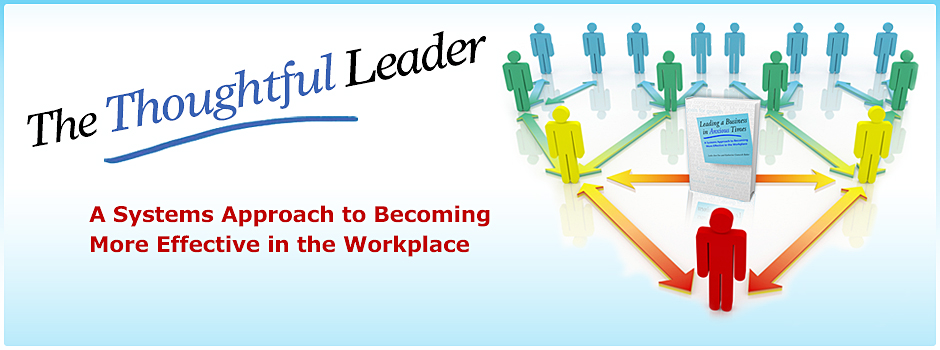“Do you use a 360⁰ evaluation process to improve the performance of top managers” is a frequent question I get from students of systems-based leadership. The short answer is, “no, we do not use it.” I think the 360⁰ approach is unnecessary and possibly counter-productive. Instead I use principles of systems-based leadership to guide my thinking about evaluation in the workplace. The 360⁰ evaluation is other-focused, a technique that is in contrast to the principle of focus on self, while having an awareness of the larger system. This important systems principle encourages individuals to reflect on the part that they play in the success or failure to meet business objectives. This principle provides me with a broader perspective than a focus on individuals, and creates more options to consider for improving performance.
Instead of 360⁰ evaluations, I encourage our leadership team and managers to meet with direct reports regularly, at least weekly, and in the course of those meetings to discuss the challenges that both the employee and manager have around key issues. The purpose of the regular meetings is to determine what the employee needs to do to be more successful. The manager could just be available for brain storming or the employee might need some assistance with resources, technology, or process improvement. The supervisor and the employee focus on solving problems or advancing the business, rather than getting caught up in discussions about personal styles, etc.
Leadership is a reciprocal process. When focusing on business issues, each party should explore what is needed to better assure success in his or her respective sphere of responsibility. It is important for managers to provide guidance to employees, but also to ask for feedback on how the manager is helping or hindering the accomplishment of important work. If that feedback includes how the manager’s performance is contributing to the problem, rather than the solution, that is all right as long as the feedback is based on fact. To get this kind of valuable feedback, directly from the employee in real time, managers can’t be defensive. They need to take time to reflect and respond thoughtfully. Criticism from employees doesn’t mean they are automatically right or wrong; they may not have all of the facts, or their facts may not be correct. But showing respect by engaging in a thoughtful conversation in which both parties search for a better solution, benefits the business and both parties. Conversations of this nature are ongoing, with progress being made over time.
One way to keep these discussions focused on work is for all staff to have written goals they develop with their immediate boss. These goals can be professional development goals, project goals, or other performance goals. During their regular meetings the goals drive the agenda, allowing for open and honest discussions about progress on the goals, obstacles to success, and actions needed to keep things moving in the right direction. Goal achievement at the individual, team, department or organizational level is an objective way to evaluate performance.
Like other aspects of systems-based leadership, improving the performance of top managers, or anyone in the organization, is more collaborative and less formal than a 360⁰ evaluation, with less focus on individuals and more on the business challenges. It encourages people to work on increasing their emotional maturity, by managing their anxiety in an important relationship (employee-boss). Communicating regularly around factual matters helps both parties learn to have difficult discussions in a non-anxious way, and encourages people to put out their own best thinking. Just as in a family, where we don’t have formal performance appraisals or 360⁰ evaluations, a high performance workplace has continuous engagement around important issues; everyone takes responsibility for their own emotional functioning, which lowers anxiety and enables more creativity, flexibility and clear thinking throughout the relationship system in the business.
Leslie Ann Fox, January 11, 2012
